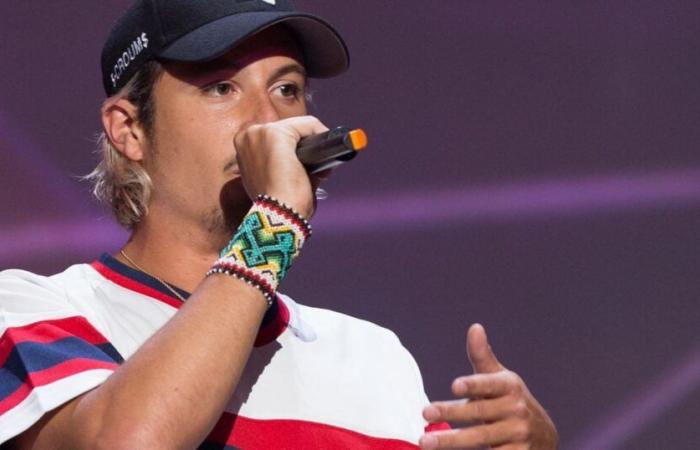After many years of silence, a rap legend finds himself back in the spotlight, but for the wrong reasons. Ken Samaras, better known as Nekfeu, is accused of sexual assault and rape. He is the subject of a complaint for psychological, sexual and physical violence, coming from a partner who prefers to remain anonymous. At the heart of the accusations set out in a press release, acts of domestic violence, but also repeated rapes against him, within the framework of a relationship which lasted four years.
“Many proceedings pit the complainant against her husband. She is going through real hell. After years of living in silence and fear, she denounced acts of rape perpetrated against her on several occasions. She suffers from severe post-traumatic stress“, informs us the press release from lawyer Florence Fekom, the lawyer of the spouse in question. These are revelations to which we return in detail in this article.
Also on social networks, the accused finally responded to these statements, also through a press release. But by using rhetoric that feminist activists have been widely dissecting for hours. A very problematic speech?
This is why Nekfeu's speech is widely criticized by feminists
Nekfeu's response seems clear…
“It is an entirely false and defamatory press release accusing me of violence, particularly sexual violence. This entire press release is false.“, he states bluntly. In his own press release shared on Twitter, the rapper explains that his ex-partner's complaints have already been dismissed by the courts. And also, that this partner is the subject of an upcoming trial.
“These accusations come at the same time as my ex-partner was arrested last night for the worrying disappearance of my 3-year-old son. She has currently been under judicial supervision since September and is prohibited from going near our son's school. She tried to use our child to get to me“, develops the rapper.
“She tried in vain at the time already to blackmail me financially, threatening me to go to the media if I did not pay her a large sum, knowing well my discretion and my deep convictions on this subject which affects me . Despite her unfounded and shocking accusations, she has since been convicted several times“
“I firmly believe that we must redouble our efforts to make the voices of women victims of violence heard. I myself once said with aplomb that there is smoke without fire on this subject, but life has shown me that on rare occasions other motivations can come into play.“, writes the artist again.
But why is Nekfeu's response problematic?
In fact, as stated by the feminist voices who reacted strongly to this press release on social networks, the arguments deployed correspond to a typical anti-#MeToo discourse: the evocation of manipulation and lies for financial purposes (the unavoidable “they do this for money“), the use of the well-known stereotype of the “crazy ex” (a statement which was the subject of this mood post on Terrafemina), and the highlighting of intimate feminist convictions as a guarantee of value. .. And not guilty.
Or, if not “innocence”, pledge “of honor“.
Between the lines, we also find the suggestion that there are “real” victims, and false victims, who would serve “the cause”. Either on one side, “the voice of women victims of violence“, and on the other, in opposition, these marital accusations… This is in any case what is suggested to us.
In addition, in a much more pragmatic way, the dismissal of the ex-partner's complaints by the courts is considered by the rapper as proof of his “innocence”, a term that he uses openly in the press release.
However, factually, a complaint dismissed does not demonstrate the innocence of the accused.
What is “anti-#MeToo” rhetoric? Examples abound
This is also what feminist activist Chloé Thibaud expresses.
On Instagram, the author with more than 19,000 followers explains: “This is one of the first strategies of violent men: 'you're the crazy one, the hysterical one', 'you're the violent one', it's about reversing the roles“. Before deploring: “People who don't know the mechanisms of domestic violence are so quick to say 'I believe you' to the attackers and 'why are you lying?' to the victims“. Listening to the author, we silence too much the accusations of the ex partner in this affair, which testifies to a reversal of guilt.
A bit like “victim blaming”: a phenomenon that we analyze in this article.
Chloé Thibaud also recalls that a marital situation involving the custody of the child by the rapper would not be inconsistent with acts of domestic violence, sexual assault, and rape. However, this is not what many fans think, who are defending the artist following these new revelations. The mention of custody of the child would demonstrate, if we are to believe particularly vocal listeners on Twitter, his innocence.
In this interview with journalist Rose Lamy (Prepare yourself for the fight), feminist author, we return to the elements of language inherent in anti-#MeToo charges. You certainly know “people's court”, “witch hunt”, “harming the real victims”, but there are a plethora of lesser-known nuances in all this lexicon.
We return in this other detailed article to the “bogus” excuses of perpetrators of violence or men accused of violence. We always find the same expressions, the same rhetorical pirouettes… Lots of eloquent examples to support it!
A response which does not fail to provoke a reaction, in a naturally exacerbated manner. We know that lawyer Florence Fekom saw her accounts be the subject of massive reports on social networks from the rapper's fans, which would have led to the suspension of said online accounts. In this article, we tell you about the various reactions from fans.
A case to follow, therefore.






